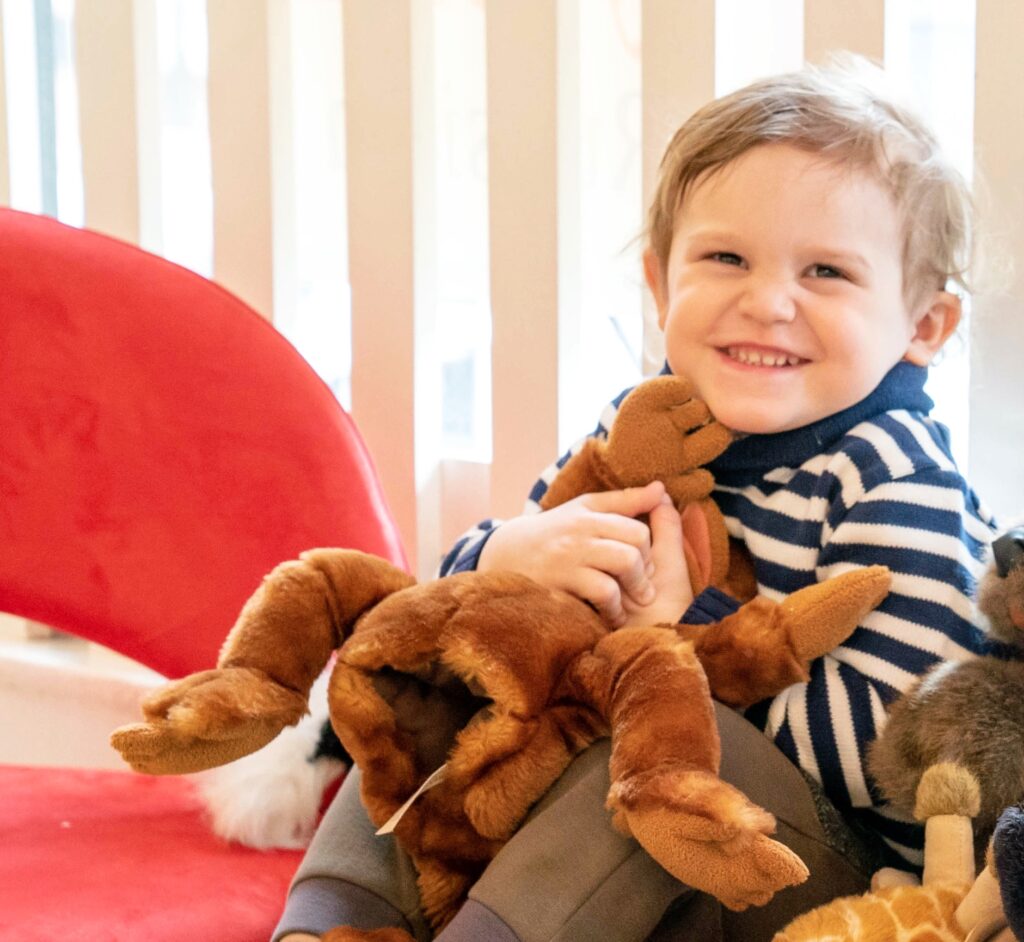Every Age, a Remarkable Stage: Your young child’s development year-to-year
Every few weeks, we’re focusing on a specific age group to explore the exciting things happening in your child’s body and brain—be sure to catch all the articles in the series!
.
★★★
One-Year-Old Wonders!
Twelve to 24 months is such an exciting age! Your sweet little bundle of joy is on the move and growing very rapidly. During this period, babies develop many important motor skills: crawling, then walking, then running, going in all directions–forward, backward, sideways. They learn to climb stairs and jump. Soon they’re able to throw, roll, and kick a ball.
Young toddlers start to understand more of what you say, and gain language skills of their own—while they speak only 2 or 3 words at 12 months, they’ll be able to use nearly 50 words by 24 months, and even put together short, but clear and meaningful sentences such as, my bear, more milk, or no bed! Sometime during this period, your child will begin to understand and respond to basic questions and act on simple instructions.
Your 12-24-month-old has formed strong emotional bonds with those closest to them and may experience some separation anxiety. On the other hand, they’re developing a will of their own now and to do things by themself, in their own way. At times, these impulses come into conflict, so they have lots of feelings all at once, get confused and frustrated, and may have the occasional meltdown.
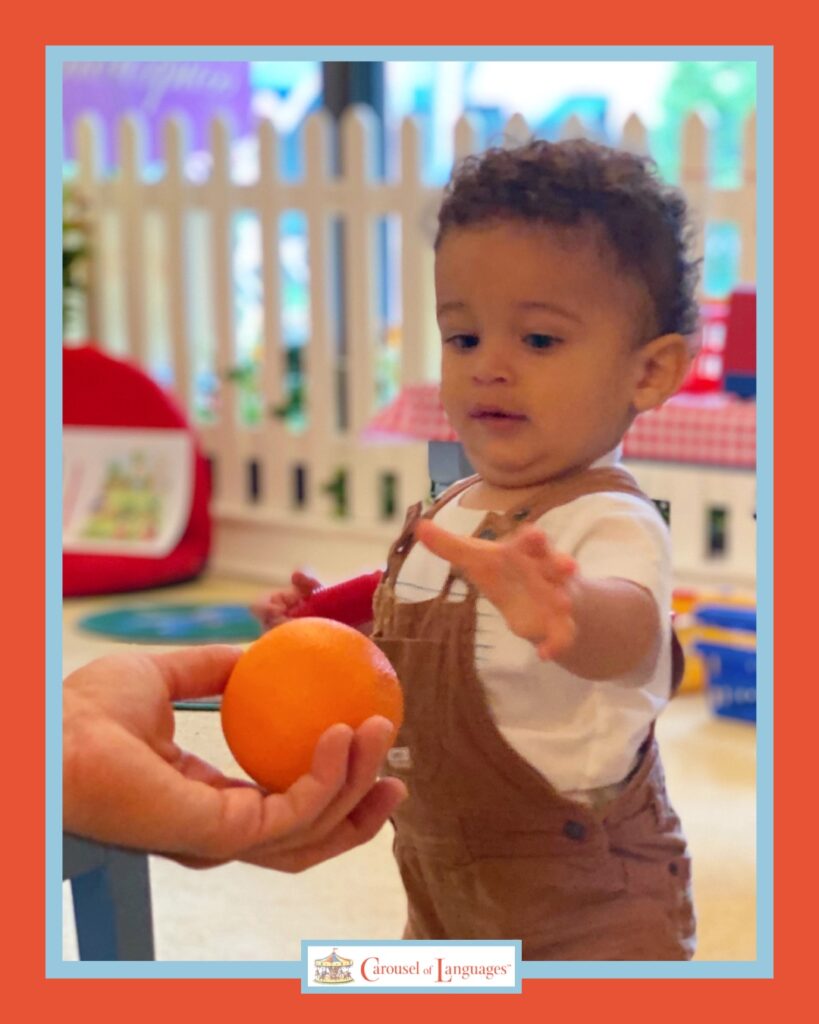
Children this age still learn primarily through their bodies and senses. They want and need to explore — to touch, hold, smell, taste, reach, climb. They don’t yet understand that certain things can hurt them—the oven is hot, the stairs are steep. They put everything in their mouths and get into things they shouldn’t. It’s very important during this phase to verbally affirm and actively support their exploration, while staying vigilant and keeping them safe by “babyproofing” their environment and offering positive redirection when necessary.
Your child is very focused on themself right now, but also getting interested in watching older children play, and observing how you do things. They love to imitate, and are also beginning to imagine.
In this amazing phase of cognitive development, your toddler gains the ability to remember recent events, things that have happened or that she’s done in the last few hours or a day. It’s the beginning of real thinking!
★★★
As we discussed in our recent article “Incredible Infants,” Swiss psychologist Jean Piaget made the first formal study of cognitive development in children—including reasoning, memory, language, social-emotional skills, and more. Piaget believed that children take an active role in their own development, interacting with the world to gain knowledge. He identified and defined 4 main stages of children’s cognitive development. The first of these stages, stretching from birth to approximately 24 months, is the Sensorimotor stage. For the first 2 years of life, infants learn through their bodies; their senses and movements help them connect with and understand the world around them.
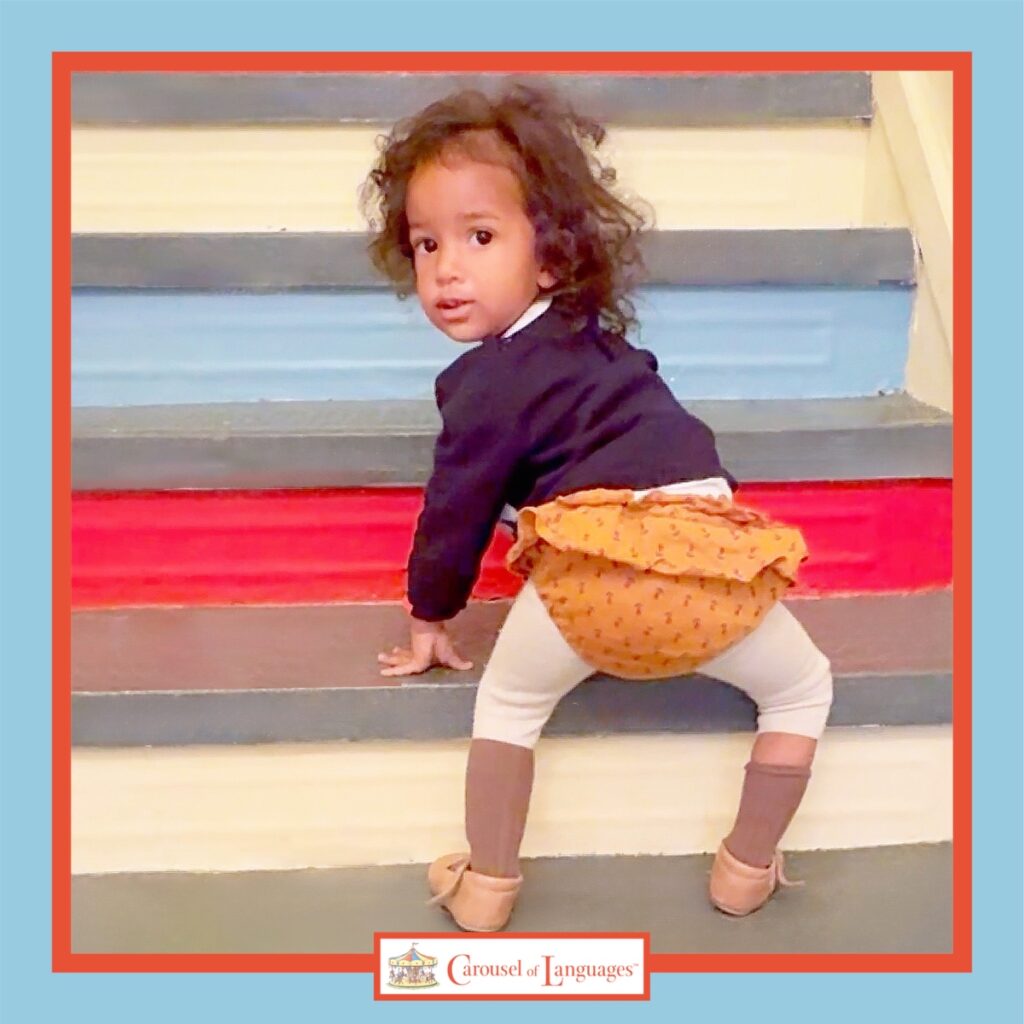
Piaget also defined 6 separate sub-stages of the Sensorimotor period. The first 4 sub-stages—Reflexes, Primary Circular Reactions, Secondary Circular Reactions, and Coordination of Secondary Circular Reactions—occur approximately within the first 12 months of life. See Incredible Infants for more information on those!
The final two fascinating sub-stages of the Sensorimotor phase, which take place between 12-24 months, are Tertiary Circular Reactions and Symbolic Thought.
Simply Psychology defines Tertiary Circular Reactions as “intentional adaptations to specific situations.”
Between 12 and 18 months, as real toddlerhood begins, your little one starts to experiment through trial-and-error, exploring cause and effect, and solving problems. They try various ways of fitting a piece into a puzzle, or, instead of just taking apart the stacking rings, attempt to put them back together. Or they might open and close the cupboard, again and again, taking out all the pots and pans and putting them back in, just to see what happens each time. They try out various noises and actions to get your attention and watch how you respond. They’re also exploring how objects behave in the world—do they bounce, crash, splatter, make interesting noises?
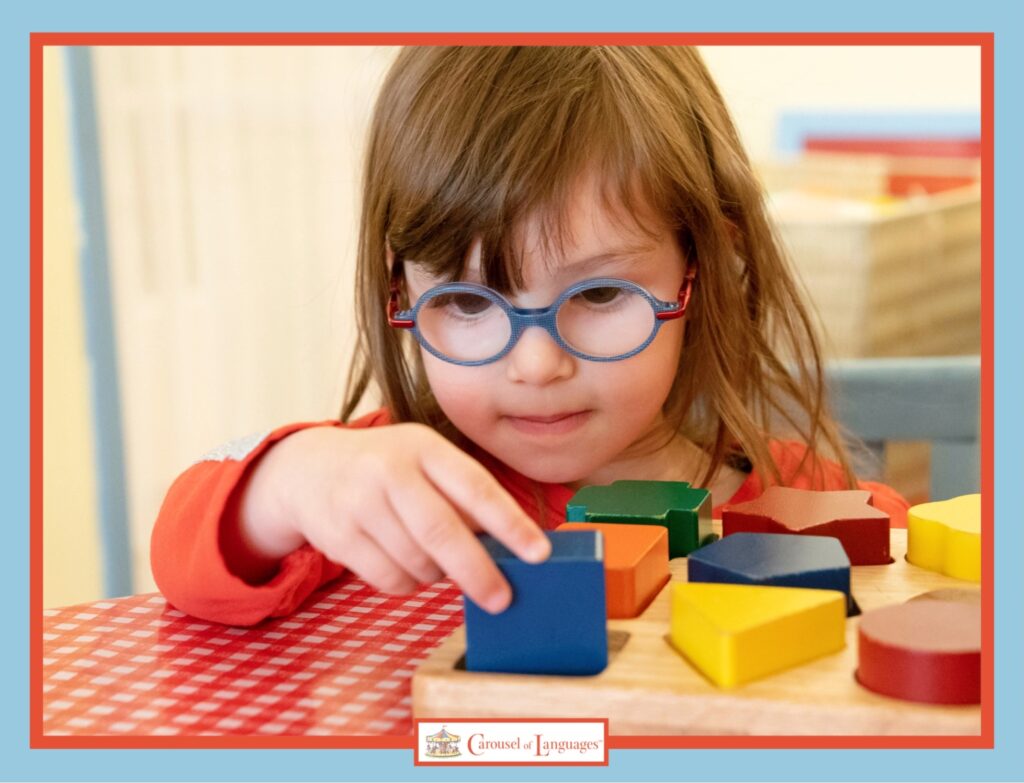
The sixth substage (which transitions them to the next major developmental phase, Preoperational) is Symbolic Thought. At 18 to 24 months, your child begins to move beyond the stage of learning solely through the body and physical actions, forming a mental understanding of the world.
They’re now able to visualize things that are not right in front of them. This shows further development in the central achievement of the sensorimotor phase—an understanding of object permanence, which doesn’t happen all at once, but fully emerges over time.
Because your toddler can now form mental representations of things, they can get creative! As they grow closer to two years, toddlers make a big leap forward in imagination, beginning to play pretend. They may “feed” a doll, or make a toy cat say meow, or chatter into a toy phone. They may pretend by imitating you, brushing their hair, putting on your shoes, getting dressed for work.
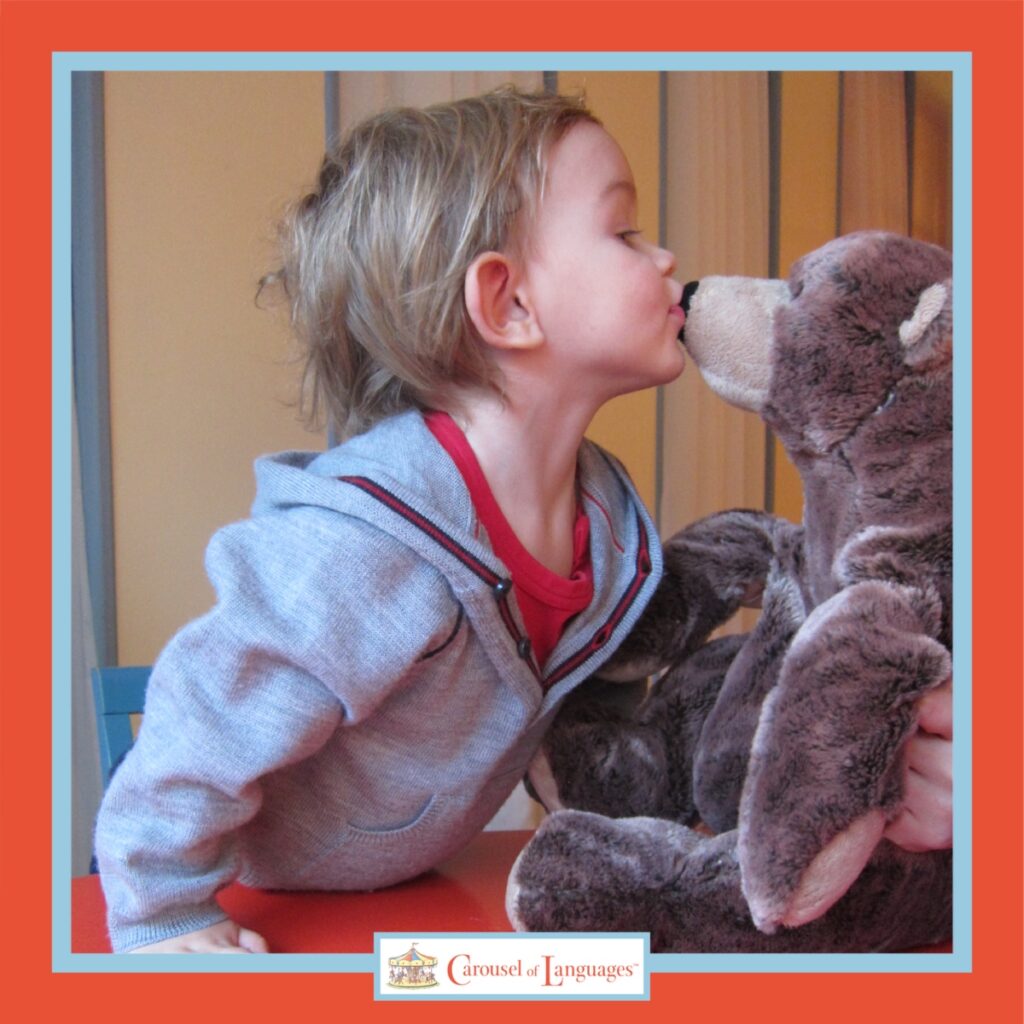
Unstructured playtime is extremely important right now! Provide lots of opportunities and materials for safe sensory-rich play and experimentation: things to take apart and put back together, to push and pull, to dig in and dump out and pour, to stack, and build, to squish and bang together.
Talk with your child as you go about your day, explain what you’re doing, and name the objects you’re using, adding new vocabulary often. Play imitation games, peekaboo, hide and seek. Sing songs and repeat nursery rhymes, especially ones that include fun fingerplay like “Itsy Bitsy Spider” or “Five Little Monkeys.” Read, read, read! Get outside as often as possible to get exercise and explore the infinite variety of interesting things in nature.
As always, positive, loving, playful, spontaneous experiences with YOU are crucial to brain development—and the very best education for your toddler!
★★★
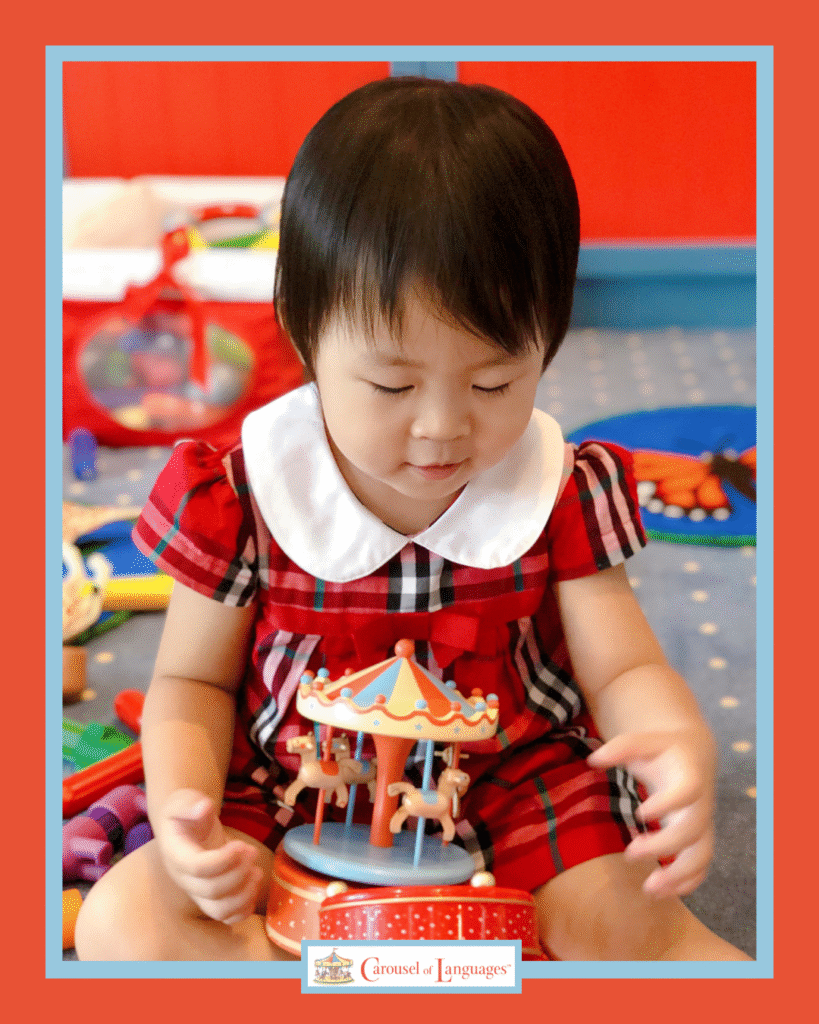
★★★
Carousel’s early childhood program is meticulously designed to grow through these stages with your child, offering the proven cognitive, creative, academic, and social-emotional benefits of early foreign language exposure. Our warm, nurturing environment, whole-child philosophy, and play-based multisensory methodology provide the perfect enrichment for all that you’re doing at home!
★★★



